The remarkable downfall of Bashar al-Assad’s regime in Syria has liberated millions from his tyranny, but Syrian Christians and other religious and ethnic minorities remain fearful of their future. Should the new powers persecute Christians and other minorities, they will have to run for their lives.
These challenges will confront the incoming Trump administration on Day 1. While the president-elect wants to avoid Middle East entanglements, there are actions his administration can take to support religious freedom and minority rights. Pairing consequential diplomacy with targeted humanitarian assistance can help ensure Syrian Christians and other minorities are not erased from their ancestral homeland.
Headlines about Syria belie its diversity. The U.S. government estimates that 74 percent of the population is Sunni Muslim, but Syria’s Christian population was one of the largest in the Middle East before the war, at about 2 million strong. The faithful belong to various historic churches, such as the Syriac Orthodox Church, Eastern Catholic churches, such as the Maronites, and the Assyrian Church of the East, but there are also small Protestant denominations and underground converts from Islam. Yet years of fighting have led thousands to flee. Open Doors—a nonprofit that advocates for persecuted Christians around the world—believes approximately 579,000 remain. That’s a precipitous drop, but Syria’s Christian community is still one of the largest in the region.
Even within the majority Sunni Muslim community, diversity exists among Arabs, Kurds, Circassians, and others. Roughly 15 percent of the population identifies with minority Muslim sects, such as Alawites and Ismailis. In addition, small communities of Druze inhabit areas near the Lebanese and Israeli borders, while Yazidis are found in the northeast.
Post-war Syria presents a myriad of problems for all Syrians and for the new Trump administration. Bashar Al-Assad’s brutality created a humanitarian catastrophe. Of Syria’s pre-war population of 23 million, roughly half are displaced or have sought refuge in Lebanon, Turkey, or Europe. The world is watching how the new ruling power in Damascus, Islamist rebel group Hay’at Tahrir al-Sham (HTS), will govern. Despite HTS’ past connections with terrorists, initial statements pointed toward an inclusive future for a multicultural Syria.
Yet, recent events demonstrate the need for vigilance. The U.S. Commission on International Religious Freedom found HTS’ rule of Idlib in northwest Syria to be authoritarian and repressed religious freedoms. HTS says it plans to reform Syria’s education system, tilting it toward the group’s narrow religious doctrine, which has alarmed both Muslims and non-Muslims alike and women’s rights activists. The Alawite Muslim community, a minority Islamic sect and the community of the Assad family, is also at risk of reprisal attacks for political and sectarian reasons.
Concern also extends beyond Damascus to the country’s northeast, an autonomous zone that emerged after the ISIS terrors a decade ago. Governed inclusively for several years by a multiethnic coalition, the peace has allowed the region’s Christian population, estimated at 120,000, to recover. However, assaults by the Turkish-backed Free Syrian Army (FSA) are intensifying. Dominated by Islamists, the FSA opposes minority rights for Kurds, Christians, and Yazidis. According to observers, Turkish airstrikes, drones, and artillery fire support the FSA advance. Christians fear annihilation by this renewed assault.
Consequently, across Syria, Christians and other minorities are deeply concerned about their future. Considering the first Trump administration’s remarkable effort in Iraq that surged resources to assist Christians, Yazidis, and others after the ISIS genocide, many will hope for a comparable response providing assistance and political support. But is that possible?
There are similarities between Iraq and Syria—both were ruled by Baathist dictators hailing from a minority Islamic sect in their country. Both nations were pummeled by years of fighting with Islamist groups who also victimize minorities. Turkish incursions continue with impunity in both, while Iranian proxies operate widely.
However, significant differences will limit American influence in Syria. First, while U.S. soldiers are in Syria, the United States is not an occupying power. In Iraq, the U.S. was the “largest tribe,” able to dictate terms in ways impossible in Syria and later significantly aid the fight against ISIS. Not so in Syria. In addition, Donald Trump has said Syria’s multilayered conflict is “not our fight” and that the U.S. should “stay out of it.”
Yet, even if the United States operates at a distance, an American response mixing power politics with humanitarian assistance can help minorities. Firstly, to prevent mass migration, the United States should work toward a Syria where Christians and other minorities are equal citizens. The Trump administration can make clear the importance of minority rights, equal citizenship, and freedom of worship through bilateral engagements, as well as in concert with European allies and, most importantly, Arab partners. It will be crucial for countries like Egypt, the UAE, and Qatar to reinforce these messages (and not support parties opposed to them). The Trump administration should make clear these priorities and be willing to publicly expose nations opposed to them. A future Syria respecting the rights of all its citizens will encourage people to stay or return.
A similarly strong message will be needed to end attacks by Turkey’s proxies. Human rights and advocacy groups are calling for re-imposing sanctions under Executive Order 13894 against Turkey’s leadership until Turkish forces and proxies withdraw from the autonomous zone in the northeast. The northeast’s successful secular, multiethnic, multireligious governing structure is a model for a peaceful Syria, something worth protecting, not destroying. In addition, these partners have worked with U.S. Special Forces to defeat ISIS in the region and maintain prisons. All of this is at risk should the FSA continue its advance.
While rebuilding a rights-respecting Syria is crucial, it will take years, and the United States must be ready to assist Christians and other minorities in harm’s way now. Thus, policymakers should pair consequential diplomacy with humanitarian assistance and refugee resettlement. For instance, should HTS enforce a narrow ideology over the country, or if Turkish attacks continue in the northeast, another Christian exodus may follow. The Alawite community will also likely flee, fearing political and sectarian reprisals due to their minority Islamic creed and associations with the Assad family. Yazidis, too, have consistently faced violence on account of their unique beliefs. Maintaining a robust refugee resettlement program would allow for a controlled process that vets refugees, as opposed to unfettered immigration.
Certainly, the United States cannot take everyone, so regional pathways to safety must also be ensured in advance. When the civil war started, I heard consistently from Christians about the failure of U.N. refugee offices in the region to understand and accommodate the unique traumas of religious minorities. Roadblocks disincentivized Christians from accessing U.N. assistance. Better training and messaging can demonstrate that U.N. resources are based on need and won’t discriminate on creed. The United States can insist the U.N. do better.
Syria stands at a crossroads, its future uncertain and its diverse communities in peril. A Syria that respects the rights of all its citizens is not just a moral imperative—it is essential for lasting peace and stability in the Middle East.
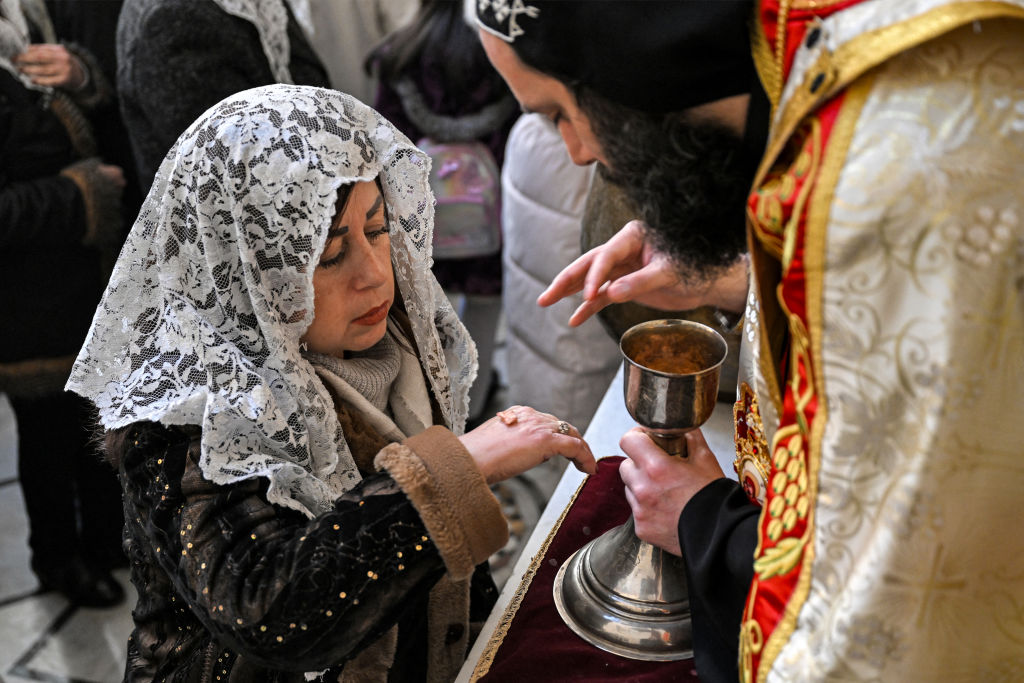
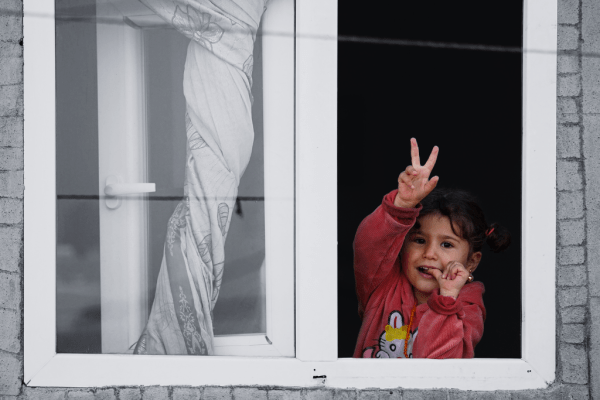
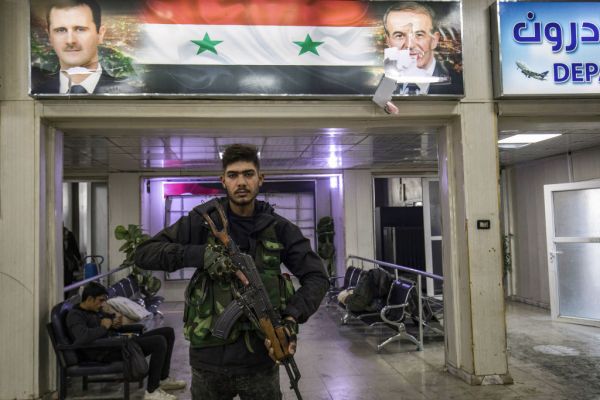
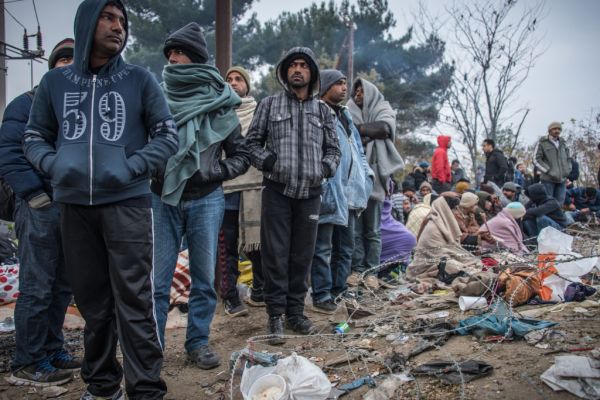

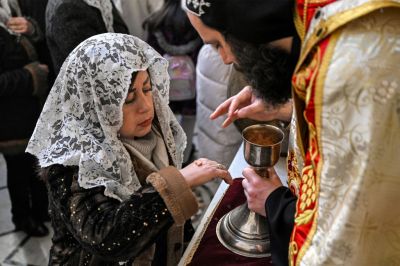
Please note that we at The Dispatch hold ourselves, our work, and our commenters to a higher standard than other places on the internet. We welcome comments that foster genuine debate or discussion—including comments critical of us or our work—but responses that include ad hominem attacks on fellow Dispatch members or are intended to stoke fear and anger may be moderated.
With your membership, you only have the ability to comment on The Morning Dispatch articles. Consider upgrading to join the conversation everywhere.